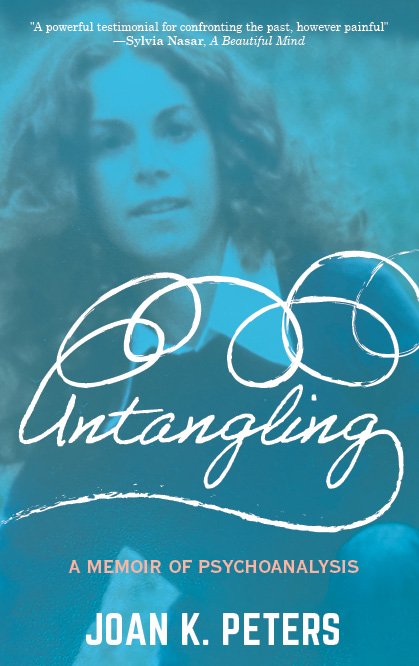Joan K. Peters’ Untangling: A Memoir of Psychoanalysis charts a deeply personal, rigorous journey through decades of psychoanalysis. The book offers a rare look at the process not from the analyst’s perspective, but the analysand’s. We’ve seen plenty of accounts by clinicians about their patients — among the most well-known are those by neurologist Dr. Oliver Sacks. What makes the genre so fascinating is the chance to play detective: privy to discoveries, privy to breakthroughs. Here, it’s Peters herself narrating, and she shares insights not just about herself, but the intricate relationship between patient and doctor. It’s the patient that owns her own story, and writers like Sacks aside, it’s a welcome change.
Being a professor and a writer certainly helps here: Peters, well in command of her language, can articulate complexities beautifully. She’s adept at revealing the goings on of the psyche; the push-pull between impulse and attachment. She describes her sessions, her dreams, her family history, and her own inner turbulence with the same candor and clarity. In so doing, she also makes it clear why a psychoanalytic approach is so effective. Deep-seated means just that. It’s hard to pry those old demons loose, and sometimes takes more precise, more incisive, and more digging into the root causes than your average psychotherapy bout. In this era of quick fixes, Peters makes a compelling case for a more immersive, transformative method.
The story begins with night terrors and a baffling sense of inner disarray. A partner encouraged — more like pushed — Peters to try and uncover what was going on. That led to not one but two epic phases of psychoanalysis. The first, when Peters was in her twenties, uncovers the scarring, shocking trauma she experienced as a very young child. But it doesn’t free her of that trauma’s hold.
It’s only decades later, during a second bout with a different psychoanalyst, that Peters begins to truly investigate the tricky ground of her past — the disturbing, subtle ways she was undermined and discounted; the way small moments of neglect and harm piled up in a wall of psychic damage. Psychoanalysis takes a lot of work — harrowing, heartbreaking, and also at times energizing emotional and mental labor. But at long last she’s able to feel some kind of peace. Old wounds may never heal completely, the author notes. But she’s finally developed the wisdom and the skills to handle them.
Is this a feel-good story with an unequivocal happy ending? In a sense, yes: it’s a story of bravery and healing. It’s definitely warts and all: the unsettling dynamics that can happen between patient and analyst are fascinating and, as it turns out, normal and understandable. Peters paints a vivid picture of transference and projection; buzzwords now, but in psychoanalysis they have very specific meanings, and for good reason. As Peters notes, her constantly evolving attachment to her analysts was crucial to the process of healing, and the care her psychoanalysts took in the face of it speaks volumes. All in all, this memoir is well worth the read.Find Untangling on amazon, and learn more about the author at untanglingjoan.com
Heather Savage

